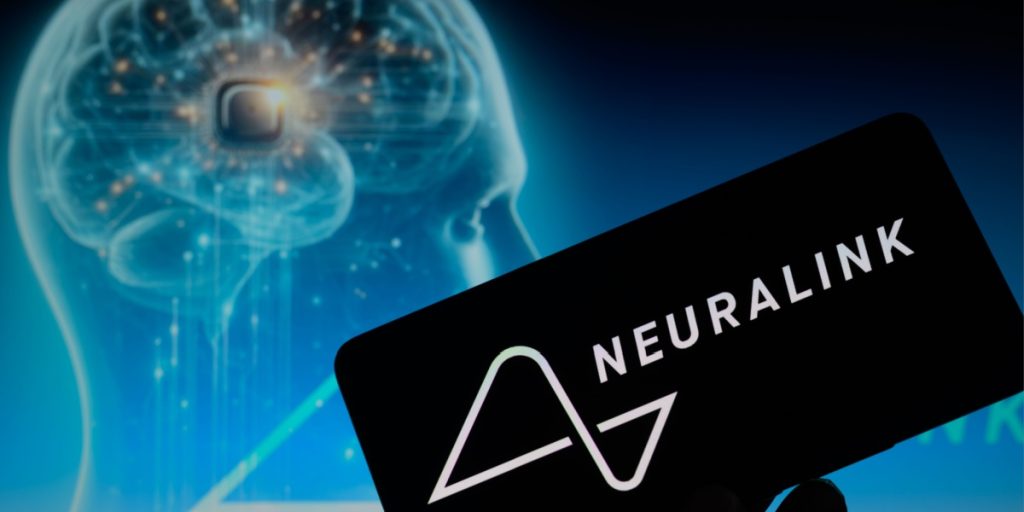Russia’s neurotechnology sector is quietly moving far beyond consumer wearables and experimental implants.
Others are reading now
While Elon Musk’s Neuralink moves cautiously through U.S. clinical trials, Russia’s neurotechnology sector is accelerating toward a very different goal: not restoring human abilities, but enhancing them. At the center of that effort is Neiry, a Moscow-based deep-tech startup whose founder openly argues that humanity is on the brink of an evolutionary upgrade.
For Alexander Panov, Neiry’s outspoken founder, the goal is explicit. “Brain enhancement with AI is the next evolutionary step. We were Homo sapiens, and now we will become Homo superior, an enhanced human,” he told Forbes Russia.
This is not a metaphor inside the company. It is the roadmap.
Neiry’s invasive neurotech is scaling faster than Western counterparts
While the company seems to focus on both ethical and professional quality, Neiry has become known for a string of unusual and ethically provocative experiments. In the past two years alone, the company has:
• implanted brain chips in pigeons to turn them into remotely guided biodrones
• connected a rat’s brain directly to an AI system that nudged it toward correct answers in math, history, and logic tasks
• developed invasive neurostimulators for cows, designed to alter feeding behavior and increase milk production
• performed thousands of animal neurosurgeries to refine electrodes, stimulation patterns, and implant durability
Also read
Where Neuralink must navigate years of FDA approval before implanting a handful of test subjects, Neiry carries out invasive work almost daily. The company openly describes its laboratories as the testing grounds for the hybrid intelligence systems it hopes will eventually scale into human use.
Panov frames the work bluntly: if the future belongs to enhanced humans, someone has to start building the infrastructure.
Neuralink and Neiry represent two opposing philosophies of neurotech
Elon Musk describes Neuralink’s first goal as therapeutic: allowing paralyzed patients to communicate, restoring mobility, treating neurological disease. Every step is controlled, incremental, and medically justified.
Neiry operates on a completely different axis. Its stated mission is not just to repair the brain, but to upgrade it. While the company does produce non-invasive wellness headbands and mental-state trackers, these are not the end goal. They are the data-gathering scaffolding for more ambitious invasive systems.
This split is emerging clearly:
Also read
Neuralink: Restore what has been lost.
Neiry: Enhance what already exists.
Neuralink moves slowly because it must. Neiry moves quickly because it can.
A founder preparing for a post-human future
Panov’s fixation on enhancement is personal as well as professional. He sees the merging of humans and AI not just as a technological shift, but as the future of the species. To prepare, he has taken his own education into overdrive.
According to Forbes, he studies maths weekly, neurophysiology twice a week, and previously completed coursework in psychiatry. He even studies English twice a week to communicate with foreign partners.
This self-education is part of a wider philosophy inside Neiry: if you want to build the next phase of human evolution, you need to understand the brain at every level—structure, behavior, and malleability.
Also read
Russia’s advantage: fewer limits, more ambition
Russia’s regulatory environment allows Neiry to experiment at a pace that would be impossible in the United States or Europe. That freedom shows in the company’s portfolio:
• invasive electrodes thinner than a human hair
• portable neurosurgical kits used to implant animals in the field
• biodrones that respond to brain stimulation cues
• neural implants for livestock
• acquisitions of medical-device companies to vertically integrate invasive tech production
And while Neiry produces commercially viable devices today, the company’s long-term value lies in its willingness to chart into territory Western firms are politically and ethically constrained from entering.
Panov even jokes about the scale of his ambition. Asked about his long-term goal, he replied, “To enslave the world, of course,” before laughing and pointing to a sign in his office that reads: “Heroism is needed in difficult times, but we live in an era of despair. Only a sense of humor can save us.”
That humor does not diminish the seriousness of his intent.
Also read
The collision course is inevitable
The neurotech arms race is no longer theoretical. Neuralink and Neiry are pursuing the same domain—merging the brain with machines—but with opposing philosophies and radically different cultural constraints.
If Neiry succeeds in transferring its animal-focused invasive technologies to humans, Russia could become the first country to deploy neural enhancement outside of a medical framework. That possibility alone sets the stage for a profound geopolitical and ethical divide.
The era of the enhanced human is no longer science fiction. It is a race—one in which Russia’s Neiry is running much faster than many expected.
Sources: Neiry, Forbes Russia, Neuralink


